Ambra Grisea, commonly known as Ambergris, is a substance with a fascinating and uncertain origin. Dr. H.C. Allen highlights its elusive classification, considering it a Nosode or morbid product found in the belly of the sperm whale.
This substance exhibits traits resembling intestinal or biliary concretions and has been speculated to originate from the gall bladder, possibly as a fatty excretion.
Dr. N.M. Chowdhury describes Ambergris as a fat-like substance discovered in the intestines and excreta of the sperm whale.
It is essential to note that Ambergris should not be confused with the Oil of Amber, known as Oleum Succinum.
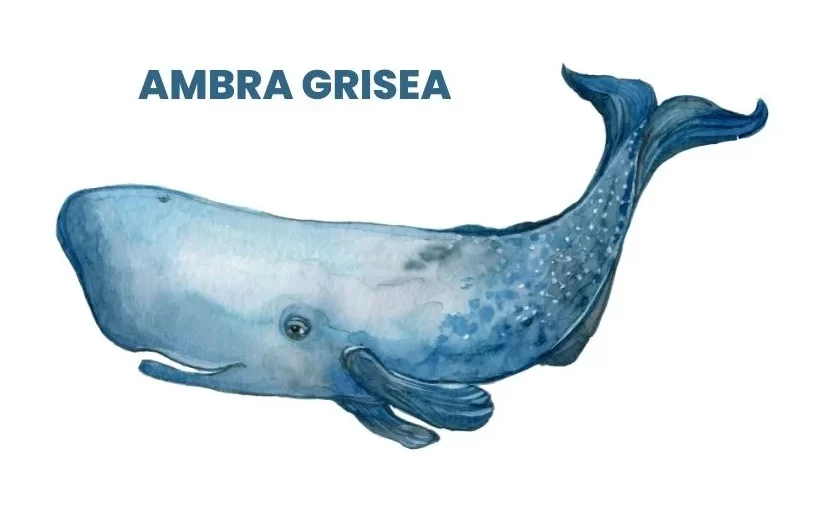
Table of Contents
ToggleSOURCE INFORMATION
- Name: Ambra Grisea
- Commonly Known As: Ambergris
- Type: Nosode (Morbid Product)
CLINICAL APPLICATIONS
Ambra Grisea is utilized in the treatment of various conditions such as constipation, convulsions, cough, dyspepsia, hysteria, menstrual disorders, leucorrhoea, neuroses, nymphomania, and ranula.
SPHERES OF ACTION
This remedy primarily influences the nervous system, particularly the pneumogastric nerve, spinal nerves, and solar plexus.
It also exerts its effects on the gastrointestinal and respiratory tracts, as well as the female genital organs.
PATHOGENESIS
Acting on the nervous system, Ambra Grisea induces symptoms such as faintness, jerking, twitching, and other hysterical manifestations.
It also impacts the female genital organs, leading to conditions like leucorrhoea, menstrual disorders, and pruritus valvae (itching of the vulva), among others.
CONSTITUTION
Ambra Grisea is well-suited for individuals at both ends of the age spectrum—elderly individuals and children, particularly young girls who exhibit excitability, nervousness, and weakness.
It is beneficial for lean, thin, emaciated, and nervous individuals, especially those who are slender and scrawny, as noted in the use of Secale Cornutum (Sec. Cor.).
Suitable for hysterical subjects, those suffering from spinal irritation, and patients weakened by age or overwork, experiencing anemia and sleeplessness.
WHAT IS CONSTITUTION IN HOMOEOPATHY?
Temperament: This remedy aligns with individuals who have a nervous bilious temperament.
WHAT ARE TEMPERAMENTS IN HOMOEOPATHY?
Heat and Cold Relation: Patients typically experience aggravation from warmth and find relief from cold conditions in general.
Miasms: The underlying miasms associated with Ambra Grisea include Psora and Syphilis.
CHIEF GUIDING SYMPTOMS
- Bashfulness: Intense shyness and easy blushing characterize Ambra Grisea.
- Social Anxiety: The presence of others is unbearable, especially during intimate activities like stooling and urination.
- Effects of Business Embarrassments: Insomnia and a compulsion to get up after business embarrassments are common.
- Coldness: Sensation of coldness in the abdomen may be experienced.
- Intermenstrual Bleeding: Discharge of blood between periods, triggered by minor incidents like walking or hard stools.
- Leucorrhoea: Thick, bluish-white mucus, particularly at night.
- Respiratory Symptoms: Cough in spasmodic paroxysms, accompanied by eructation and hoarseness. Ranula with foul breath.
- One-sided Complaints: Symptoms predominantly affect one side of the body.
- Personality Traits: Intensely shy, excitable, nervous, and hysterical. Music causes weeping, and there is a desire to be alone. Restlessness, despair, and loquaciousness are notable. Time seems to pass slowly, and there is a fear of insanity.
PARTICULARS
MIND
Personality Trait: Social Phobia
Individuals requiring Ambra Grisea exhibit a pronounced social phobia characterized by an overwhelming dread of people and a strong desire to be alone.
They experience intense shyness and blushing in social situations, making it difficult for them to interact with others.
Even the presence of a nurse during intimate activities like stooling or urination is unbearable.
Behavioural Patterns
- Avoidance: They avoid social gatherings and prefer solitude to avoid discomfort.
- Emotional Sensitivity: Music triggers emotional outbursts, leading to uncontrollable weeping.
- Despair and Loathing: There is a deep sense of despair and a general loathing of life.
- Restlessness and Loquaciousness: Despite their social anxiety, they may exhibit restlessness and engage in excessive talking when feeling nervous.
- Time Perception: They feel that time passes too slowly, adding to their distress.
- Fear of Insanity: There is a constant fear of losing sanity, especially in the presence of others or when exposed to music.
Impact on Daily Life
- Isolation: They may isolate themselves to avoid social situations, impacting their relationships and overall quality of life.
- Difficulty Functioning: Inability to perform tasks in the presence of others, such as using the bathroom, further exacerbates their social phobia.
- Sleep Disturbances: Sleeplessness due to nervousness and business embarrassment is common, affecting their overall well-being.
Overall, their social phobia significantly impairs their ability to lead a fulfilling life, causing distress and isolation.
GASTROINTESTINAL SYMPTOMS
- Stomach Distress: Experience eructations (belching) coupled with violent, convulsive coughing. Feel stomach and abdomen distended after midnight. Suffer heartburn after drinking milk, despite having no thirst.
- Abdominal Discomfort: Encounter flatulence and a distended abdomen after midnight. Experience an unusual sensation of coldness in the abdomen.
- Constipation Troubles: Frequently feel the urge to pass stool, which leads to anxiety due to ineffectiveness. Find it unbearable to have others around, even during bowel movements. Older individuals endure chronic constipation.
Aggravating Factors
- Symptoms worsen after eating, especially aggravated by warm drinks like milk consumed after midnight and in the morning.
RESPIRATORY SYMPTOMS
Cough Symptoms
- Violent Nervous Cough: Occurs in spasmodic paroxysms with eructations and hoarseness. The cough is hollow, spasmodic, and barking, originating deep in the chest.
- Whooping Cough: Manifests without crowing inspiration. More pronounced in the morning and less so in the evening. Expectoration may or may not be present.
Aggravating Factors
- Symptoms worsen with activities such as talking, reading aloud, and in the presence of people. Music aggravates the condition.
Asthma Symptoms
- Asthma in Old People and Children: Particularly effective for asthma in the elderly and children.
- Whistling in Chest: Audible whistling sounds during breathing.
- Asthma Triggered by Coition: Onset of asthma during attempts at sexual intercourse.
FEMALE SEXUAL ORGANS
- Menstrual Irregularities: Menses are notably too early and excessively profuse.
- Intermenstrual Bleeding: Discharge of blood occurs between periods, triggered by minor incidents like a long walk or after a hard stool.
- Leucorrhoea Symptoms:
- Profuse and thick discharge of bluish-white mucus, especially at night.
- Often associated with nymphomania.
- Pruritus Vulvae: Itching of the pudendum (external female genitalia) accompanied by soreness and swelling.
- During Urination: Itching, titillation, and burning sensations in the vulva and urethra.
- Burning Sensation: Generalized burning in the sexual organs.
GENERAL MODALITIES
Aggravation
- Warm drinks and warm room exacerbate symptoms.
- Music worsens the condition.
- Lying down, reading, or talking aloud aggravates discomfort.
- The presence of many people intensifies symptoms.
- Symptoms worsen after waking.
Amelioration
- Relief is experienced after eating.
- Cold air and cold food or drinks alleviate symptoms.
- Rising from bed improves the condition.
WHAT ARE MODALITIES IN HOMOEOPATHY?
Other Modalities
- Worse: Music; presence of strangers; any unusual stimuli; mornings; warm room.
- Better: Slow motion in open air; lying on the painful part; cold drinks.
RELATIONSHIP
- Do not confuse with Amber-Succinum.
- Moschus (a homeopathic remedy) often follows advantageously.
Compare
- Oleum succinum (specifically for hiccough).
- Sumbul; Castor.; Asaf.; Cracus; Lilium.
DOSE
- Second and third potencies are recommended; repetition may be beneficial.
FREQUENTLY ASKED QUESTIONS
What is Ambra Grisea?
- Ambra Grisea, commonly known as Ambergris, is a substance with an uncertain origin.
- It is considered a nosode or morbid product found in the belly of the sperm whale.
What are its clinical applications?
- Ambra Grisea is used in the treatment of various conditions, including constipation, convulsions, cough, dyspepsia, hysteria, menstrual disorders, leucorrhoea, neuroses, nymphomania, and ranula.
How does Ambra Grisea affect the nervous system?
- Ambra Grisea predominantly influences the nervous system, especially the pneumogastric nerve, spinal nerves, and solar plexus.
- It also acts on the gastrointestinal and respiratory tracts and female genital organs.
What are the chief guiding symptoms of Ambra Grisea?
- Key symptoms include intense bashfulness, social anxiety, effects of business embarrassments, sensation of coldness in the abdomen, intermenstrual bleeding, leucorrhoea, respiratory symptoms like violent cough, and one-sided complaints.
What is its constitution in homeopathy?
- Ambra Grisea is suited to both elderly individuals and children, especially young girls who are excitable, nervous, and weak.
- It is indicated for those with a nervous bilious temperament.
What are the modality factors for Ambra Grisea?
- Aggravations: Warm drinks, warm room, music, lying down, reading, or talking aloud, the presence of many people, and symptoms after waking.
- Ameliorations: After eating, cold air, cold food, and drinks, and rising from bed.
How does Ambra Grisea impact mental health?
- Individuals needing Ambra Grisea exhibit intense social phobia, avoiding people and preferring solitude.
- They experience emotional sensitivity, despair, loathing of life, and fear of insanity.
- Music triggers emotional outbursts.
What gastrointestinal symptoms are associated with Ambra Grisea?
- Gastrointestinal symptoms include eructations with violent cough, distension of the stomach after midnight, heartburn from drinking milk, flatulence, distended abdomen, and frequent ineffectual desire for stool.
What are the respiratory symptoms treated by Ambra Grisea?
- Ambra Grisea is indicated for a violent nervous cough, hollow spasmodic barking cough, whooping cough without crowing inspiration, and asthma in old people and children.
How is Ambra Grisea dosed in homeopathy?
- It is recommended in second and third potencies, with the possibility of repetition for added benefits.
Note: Consult with a qualified homeopathic practitioner for personalized guidance.


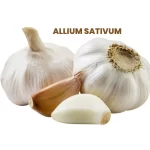

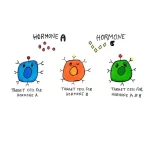
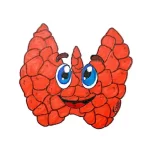
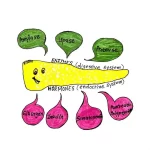
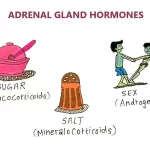

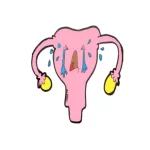

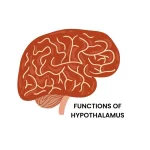

Leave a Reply